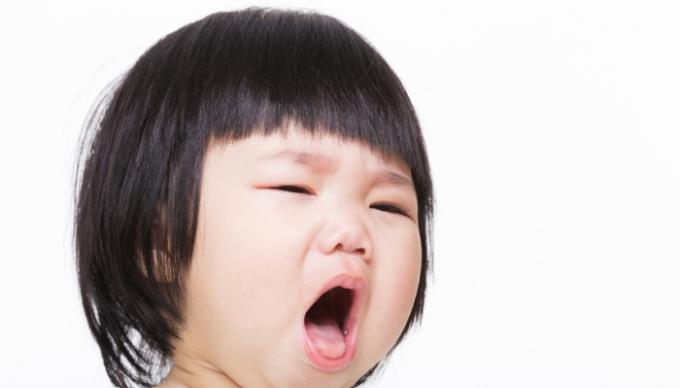Do you know, children often catch colds about 8 times a year, especially when the weather changes? To help children recover quickly, mothers should consult the following useful information for the best care of their children.
1 / Causes of colds
The culprit that makes children catch colds is nothing but rhino virus. It's present in the air and dirt, which is why this virus always tries to enter the body when given the opportunity.
The weather changes, especially when the air is dry, the rhino virus is more and more able to "spread". Young children have weak resistance, so they quickly become "favorite" objects of colds.

Children with a cold can be the underlying cause of another serious illness
2 / Signs your baby has a cold
Children with colds often feel itchy throat, runny nose, stuffy nose, and often sneeze. If not properly and promptly cared for, the illness worsens, the child will develop sore throat, a lot of cough, headache, low-grade fever, fatigue, body aches and loss of appetite. In addition, mothers can diagnose the condition through the baby's nose. The thicker the nasal discharge, the yellow or green color, is a serious illness.
3 / Cold tips for your baby
- Give your baby acetaminophen or ibuprofen as prescribed by the doctor to ease symptoms of aches and pains, headache and fever.
Absolutely not give antibiotics, especially aspirin, because this drug can increase the risk of Reye's syndrome, causing swelling in the liver and brain.
-Mom can help your baby more comfortable by helping the baby to clear the nose, easy to breathe, but absolutely do not use antihistamines. In fact, the common side effects of decongestants are hallucinations, irritability, and heart rhythm disturbances in infants .

Top mistakes when treating a baby's runny nose Trans season is a very easy time to infect children, especially nose diseases. However, not all mothers properly treat a runny nose, leading to unfortunate mistakes. The following mistakes, mothers should avoid!
4 / Help your baby more comfortable
- Reduce congestion for children by dripping saline saline.
-Avoid letting children breathe in dry air, it's best to buy a nebulizer to create humidity in the bedroom to help children sleep better.
-Children under 3 years old can drink herbal syrup to reduce cough, children over 3 years old can suck the medicine or suck on candy to help reduce sore throat.
- Limit bathing too much, shower with warm water or just wipe over the baby to keep hygiene.
- Turn on the shower in warm water mode, carry your baby into this homemade sauna to make your baby easier to breathe.
5 / When should I take my child to visit?
After 2-3 days of exposure to the source of the disease, the child will start to show signs of a cold. Most of the disease is reversed in about 1-3 weeks. However, after the onset of illness, the situation got worse and worse 3 days later, the child had a high fever, a lot of cough, stuffy nose, vomiting, anorexia, the mother should bring him to visit immediately for monitoring and checking. investigation. The risk of children getting strep throat infections, sinusitis, pneumonia, bronchitis is very high.
However, mothers should also be careful not to be subjective when they see their children have a cough, runny nose and think that it is just a common cold and wait until the disease is very serious to see a doctor. Who knows, it is some very serious underlying disease hidden under the cover of a cold.
If symptoms last for more than 1 week, appear at the same time every day, or after exposure to pollen, animals, or chemicals, your baby may have an allergy. If your child has difficulty breathing, wheezing when cold, can be signs of asthma.

Puppy helps reduce the risk of asthma in children Scientists boldly declare that the sooner children are exposed to domestic dogs, the lower the risk of allergies and asthma.
In addition, mothers can refer to a few more reasons to bring your baby to the doctor below:
Wheezing, with thick phlegm
-Rapidly breath.
-When sleeping, often lethargic, very tired.
Difficult to eat, difficult to drink.
Headache, sore throat, dizziness.
- Fever lasts more than 1 day about 38 degrees C, high fever over 39 degrees C.
Chest pain, stomach pain.














